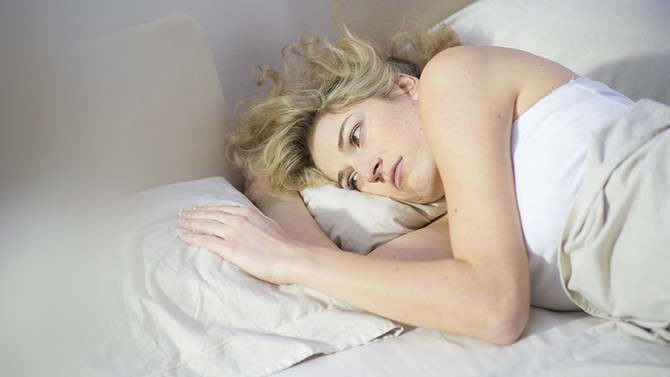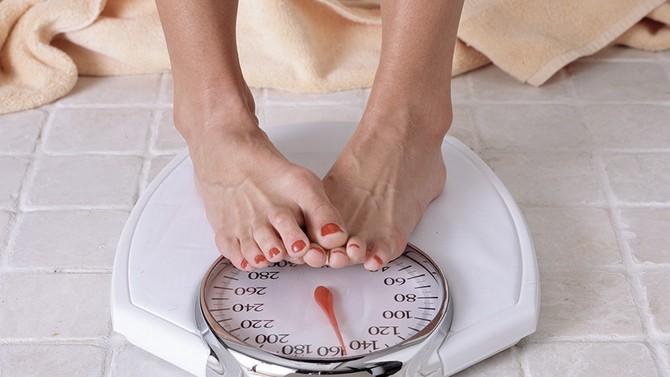Your 6 Biggest Questions About Menopause—Answered
We collected your top concerns about the transition years and went to the experts for answers.
By Beth Levine

Photo: Fuse/Thinkstock
Q: I've been having hot flashes for a decade now. Is something wrong with me?
A: Not at all. I was part of a team of researches who conducted a study on hot flashes that revealed a high degree of variability. It's estimated that at least 20 percent of women go through menopause without ever having hot flashes, but our study found that close to 40 percent had them for at least 14 years. We can't definitively predict who will be in which group, but we did find that women who began having hot flashes while still having periods ended up having them longer than women who didn't get them until after menopause. Unfortunately, we don't know enough about what causes hot flashes to understand why that happens. But if it's any comfort, you are definitely not alone. — Nancy E. Avis, PhD, professor of social sciences and health policy at Wake Forest Baptist Medical Center

Photo: merznatalia/Thinkstock
Q: How can I reduce hot flashes without medication?
A: If you're a smoker, quit. Research has shown that smoking increases the likelihood and severity of hot flashes, possibly due to changes in estrogen metabolism. Hypnosis also has a remarkably positive effect; it can produce a 74 percent reduction in hot flashes after 12 weeks, as well as improved sleep, according to a study I helped conduct. The hypnosis involved mental imagery of coolness and relaxation. I'm collaborating with the research team now to see whether we can deliver this type of treatment over the phone. Acupuncture may also help: A new report suggests it may provide hot-flash relief for up to three months. While the results may be due to the placebo effect, there's likely no harm in trying it. — Janet S. Carpenter, PhD, associate dean for research and scholarship at the Indiana University School of Nursing

Photo: simonkr/Thinkstock
Q: I used to love sex. Now I find it really painful. How can I get my groove back?
A: Many women don't realize that there are changes to vaginal tissue that happen as a result of menopause and the loss of estrogen. If untreated, these changes—dryness, loss of elasticity, thinning tissue—often cause pain during sex. But take heart: We have treatments for that. Some women find that simply using lubricants during sex helps with dryness. But for many, these sex symptoms are best treated with prescription estrogen in the form of an insertable cream, pill or ring. They're easy to use and no more intrusive than a tampon. Don't give up—your groove awaits! — Sheryl Kingsberg, PhD, chief of ob-gyn behavioral medicine at University Hospitals Case Medical Center

Photo: tetmc/Thinkstock
Q: I feel like my brain is in a fog most of the time. I'm not imaging this, am I?
A: Menopause brain fog is real, but shouldn't last forever. One study that examined cognitive performance in roughly 2,400 middle-aged women over four years found that memory began to decline when periods became irregular but returned to normal postmenopause; researchers think this may have to do with fluctuations in estrogen. The best thing for your brain? Exercise. Studies show that walking at least 90 minutes a week can improve cognition and help keep your brain healthy as you age. — Pauline M. Maki, PhD, professor of psychiatry and psychology at the University of Illinois at Chicago

Photo: Creatas Images/Thinkstock
Q: What's the best natural hormone replacement?
A: In the strictest sense, natural means a product that you can pretty much use as is. Many people assume plant-based hormone replacements are natural, but in fact, the material has to go through multiple chemical processes before it's useful to humans. That's not really natural. On the other hand, one of the first commercially approved estrogens, Premarin, is considered natural. Premarin, which came out more than 70 years ago and is still on the market, is derived from horses, but it doesn't have to go through the chemical changes that plants do. Keep in mind, though, that taking a natural hormone has no known advantages over synthesized estrogen; both are similarly effective and safe so long as you're using products that are well regulated by the FDA. — Margery Gass, MD, executive director of the North American Menopause Society

Photo: ereidveto/Thinkstock
Q: Why is it harder to lose weight after menopause even when you're exercising and eating right?
A: Unfortunately, during the menopausal transition, a slower metabolism and decreased estrogen correlate with unwanted weight gain, especially around the belly. There's no way to isolate fat reduction in one specific area, so overall weight loss should be the goal. I encourage my patients to add flaxseed to their diet to help control appetite by providing a feeling of fullness. I also recommend green tea, which contains antioxidants that may help boost metabolism , and ginseng and vitamin B complex, which may increase energy. — Lynn Pattimakiel, MD, associate staff member at the Cleveland Clinic Center for Specialized Women's Health
From the June 2015 issue of O, The Oprah Magazine

